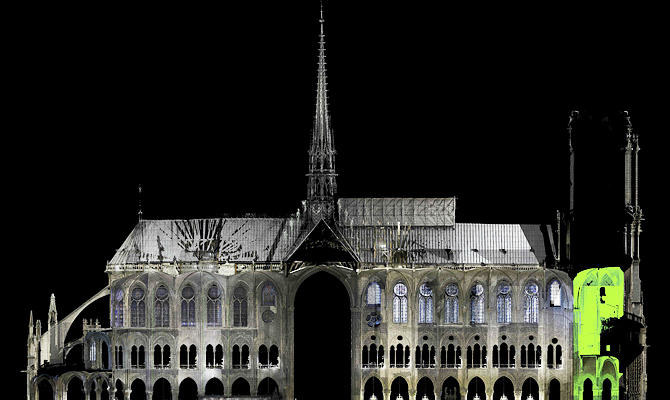On a day marked by grand pageantry and delicate power plays, French President Emmanuel Macron hosted a trilateral meeting with Ukrainian President Volodymyr Zelensky and U.S. President-elect Donald Trump in Paris. The backdrop was the much-anticipated reopening of Notre-Dame Cathedral, an event steeped in symbolism for France. However, beneath the surface of celebratory fervor, the gathering revealed the intensifying geopolitical tensions and strategic maneuvering among world leaders.
Macron, whose presidency teeters on the brink of collapse following a government upheaval, sought to project strength and unity. Meanwhile, Trump, basking in the ceremonial splendor, appeared to relish the red-carpet treatment—a stark contrast to the tumultuous relationship he shared with Macron during his first term.
Macron’s Gamble: Appeasing Trump to Secure Ukraine’s Fate
Macron’s overtures to Trump were nothing short of theatrical. The French president rolled out the grandest of welcomes, complete with a full guard of honor and multiple handshakes, in a bid to curry favor with the U.S. president-elect. This charm offensive wasn’t merely a gesture of goodwill; it was a calculated move to ensure continued American support for Ukraine against Russia’s aggression.
Read More: A New Dawn in South Asia: The Resurgence of Bangladesh-Pakistan Ties
“Today is not just about Notre-Dame; it’s about safeguarding Europe’s future,” Macron declared in a thinly veiled appeal for solidarity. The French president’s desperation was palpable, his words a stark reminder of Europe’s dependency on U.S. support for NATO and Ukraine’s war effort.
Trump, however, remains an unpredictable variable. His campaign rhetoric promised a swift end to the Ukraine war, a pledge that has left Kyiv uneasy. Zelensky, who arrived at the Élysée shortly after Trump, faces the daunting task of securing assurances from an incoming administration known for its transactional approach to diplomacy.
Trump’s Triumph
For Trump, the visit to Paris was as much about optics as it was about policy. The U.S. president-elect reveled in the grandeur, lauding his “great relationship” with Macron while basking in the adulation. Yet, his presence underscored the stark reality of Europe’s precarious position.
The red-carpet treatment extended to Trump signaled more than respect—it was a plea for engagement. Macron’s grand gestures highlighted the anxiety among European leaders about Trump’s potential pivot away from NATO and his ambiguous stance on the Ukraine conflict.
Meanwhile, Trump’s nomination of Charles Kushner, his son-in-law’s father, as ambassador to France drew ire and raised questions about his administration’s priorities. Critics decried the move as nepotism, emblematic of Trump’s disregard for diplomatic norms.
Zelensky’s Balancing Act
Zelensky entered the trilateral meeting with a mix of determination and apprehension. For Ukraine, the stakes couldn’t be higher. The war against Russia has drained the nation’s resources and morale, leaving Kyiv reliant on Western aid.
While Macron positioned himself as Ukraine’s advocate, his ability to influence Trump remains uncertain. Trump’s previous comments on NATO as “obsolete” and his admiration for Russian President Vladimir Putin cast a long shadow over the discussions.
Zelensky’s aides, meanwhile, scrambled to establish rapport with Trump’s team ahead of the meeting, hoping to mitigate the unpredictability of the incoming administration. Kyiv’s fragile position underscores the broader geopolitical stakes, with Europe watching closely to see whether Trump will reinforce or undermine the transatlantic alliance.
A Moment Overshadowed by Politics
Amid the political machinations, Notre-Dame Cathedral reopened its doors, symbolizing resilience and renewal. Macron, who had vowed to restore the iconic structure within five years, celebrated the milestone as a personal and national triumph.
Yet, the historic event was overshadowed by the urgent realities of war and diplomacy. The meeting between Macron, Trump, and Zelensky served as a stark reminder that even moments of cultural unity cannot escape the grip of geopolitical rivalries.
As world leaders gathered under the Gothic arches of Notre-Dame, the juxtaposition of celebration and crisis painted a vivid picture of our times: a world in flux, where alliances are fragile, and the specter of conflict looms large.














